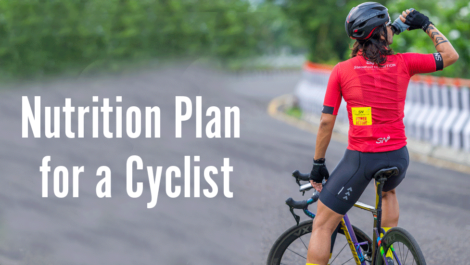HOW TO BOOST CYCLING PERFORMANCE
This article talks about foods that you can add to your nutrition plan as a cyclist to boost your metabolism. It is easier to get rid of unwanted body fat and maintain your weight with such foods as they help you burn more calories.
- Foods high in protein: Eggs, dairy, nuts, legumes and seeds are some of the protein-rich sources that help you to boost your metabolism. As our body uses more energy to digest them, they help to burn more calories. It is called the TEF i.e. the thermic effect of food. Foods that are high in protein help to increase our metabolism, prevent overeating and maintain our muscle mass.
- Foods high in iron, zinc and selenium: All these three minerals are required for the proper functioning of our thyroid gland that is responsible for regulating our metabolism. A diet low in these minerals slows down our metabolism as it reduces the ability of the thyroid gland to produce a sufficient amount of hormones.
- Chilli peppers: Capsaicin in chilli peppers helps to boost metabolism, it has appetite-reducing properties and also helps in fat oxidation.
- Coffee: It helps to increase the metabolic rate and burn the body fat for energy.
- Tea: The catechins that are found in green tea help to burn fat and increase metabolism. Catechins and caffeine help to increase the fat-burning ability of our body.
- Pulses and legumes: They are high in fibre, protein and also certain amino acids through which they help to boost the metabolism of the body.Examples: peanuts, beans, chickpeas, lentils are high in protein.
- Spices: Cayenne pepper and ginger have fat-burning effects and they help to increase the metabolism upon their consumption.
- Cacao: It helps to stimulate the use of fat stores for energy and also prevent absorption of extra calories, thus providing metabolism-boosting effects.
- Apple cider vinegar: It promotes fat burning and also helps to decrease fat storage.
- Coconut oil: It is high in MCT i.e medium-chain triglycerides that do not get stored as fat and directly go to the liver where they are turned into energy. MCTs, help to increase the metabolic rate of the body.
- Water: It helps to stay hydrated and also boost the metabolism upon its consumption. It also helps to replenish the lost electrolytes through sweating and keep up with your performance during a race. Therefore, it is very important to stay well hydrated.
References:
Boschmann, M., Steiniger, J., Hille, U., Tank, J., Adams, F., Sharma, A. M., Klaus, S., Luft, F. C., & Jordan, J. (2003). Water-induced thermogenesis. The Journal of clinical endocrinology and metabolism, 88(12), 6015–6019. https://doi.org/10.1210/jc.2003-030780
Matsui, N., Ito, R., Nishimura, E., Yoshikawa, M., Kato, M., Kamei, M., Shibata, H., Matsumoto, I., Abe, K., & Hashizume, S. (2005). Ingested cocoa can prevent high-fat diet-induced obesity by regulating the expression of genes for fatty acid metabolism. Nutrition (Burbank, Los Angeles County, Calif.), 21(5), 594–601. https://doi.org/10.1016/j.nut.2004.10.008
Hursel, R., Viechtbauer, W., Dulloo, A. G., Tremblay, A., Tappy, L., Rumpler, W., & Westerterp-Plantenga, M. S. (2011). The effects of catechin rich teas and caffeine on energy expenditure and fat oxidation: a meta-analysis. Obesity reviews : an official journal of the International Association for the Study of Obesity, 12(7), e573–e581. https://doi.org/10.1111/j.1467-789X.2011.00862.x
Wycherley, T. P., Moran, L. J., Clifton, P. M., Noakes, M., & Brinkworth, G. D. (2012). Effects of energy-restricted high-protein, low-fat compared with standard-protein, low-fat diets: a meta-analysis of randomized controlled trials. The American journal of clinical nutrition, 96(6), 1281–1298. https://doi.org/10.3945/ajcn.112.044321













Comments
No comment yet.